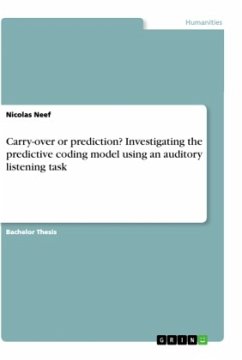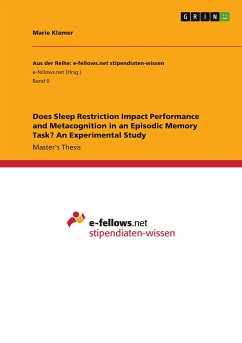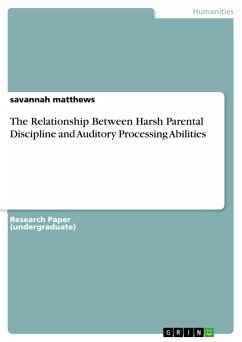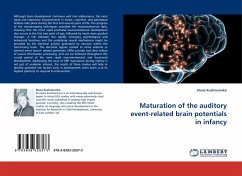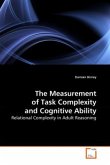Bachelor Thesis from the year 2018 in the subject Psychology - Cognition, grade: 1,0, University of Salzburg, language: English, abstract: Researches have come up with the framework, that for the fluency of our perception we fundamentally rely on top-down predictions, which occur prior to the appearance of actual external stimuli. These predictions lead to very specific modulations of our perceptual units to facilitate perception. The theory behind this framework is the predictive coding theory, which has gathered increasing interest in research. The predictive coding theory could provide a better understanding of how we cope with perceiving our complex environment. For this study focus lies on the auditory domain. A recent study, conducted by Demarchi et al. (2018), could find evidence supporting the predictive coding framework. By analyzing MEG data they could even show, that predictions are so sharply tuned, that they contain specific tonotopic information about an upcoming tone. Due to the fact, that they trained a classifier on pre-stimulus data to decode post-stimulus data, their results are confounded with a carry-over effect (activity still present from previous stimuli). The purpose of this study is supporting this study and rule the carry-over effect out as the only explanation for their findings. We therefore conducted a follow-up experiment and changed the paradigm, as we included conditions with fixed and random stimulus omissions. Since no prediction activity should be found when the omission is fixed, a higher mean decoding accuracy in the random omission condition would directly indicate towards a tone-specific prediction. In our MEG-experiment we can provide further evidence for the findings of Demarchi et al. (2018), by finding this very result.

